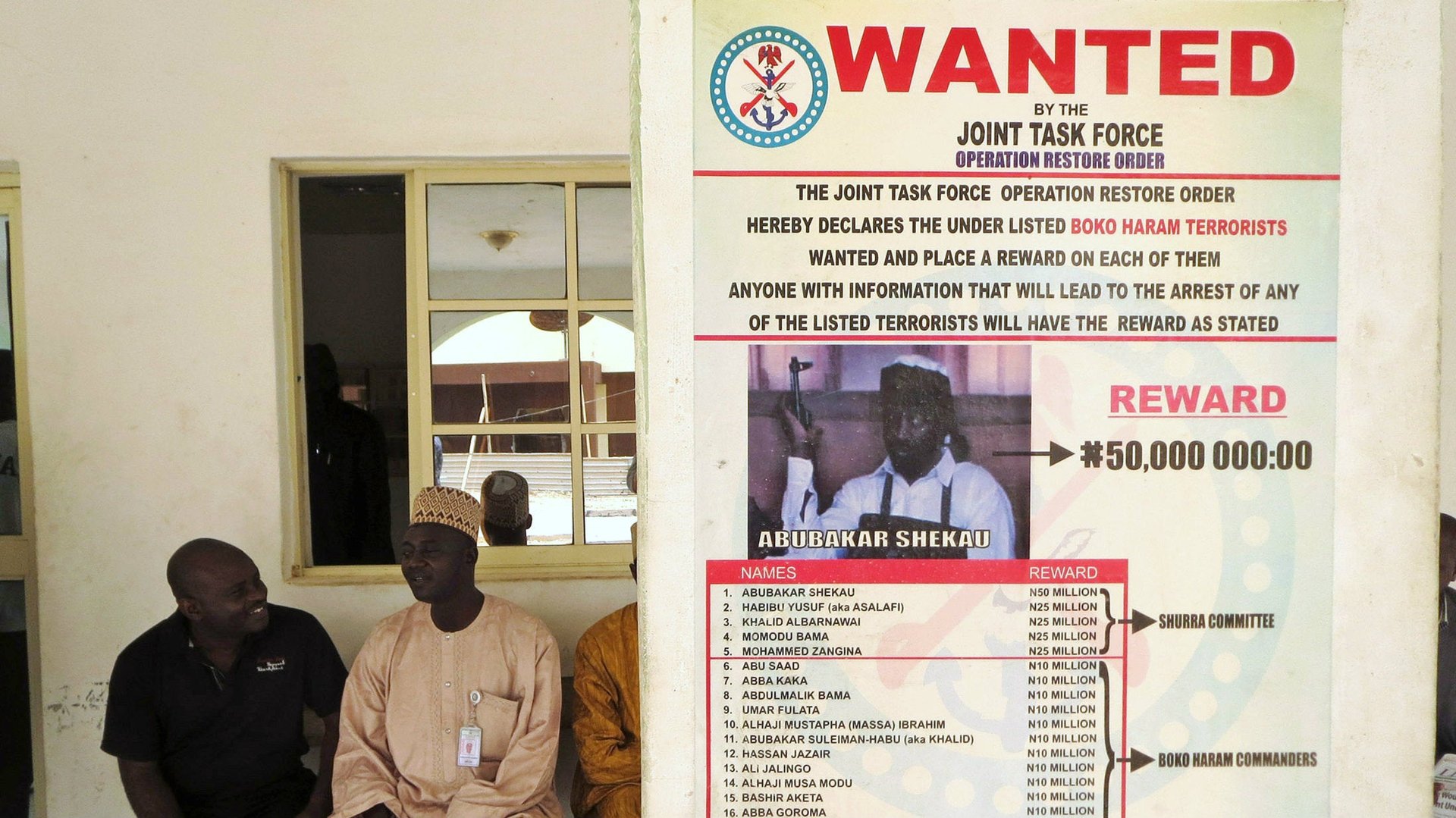Nigeria’s army says it has killed Boko Haram’s leader—again
Nigeria’s army says it has killed high-value target commanders of terrorist sect, Boko Haram. In a statement, Sani Usman, the army’s spokesman, said after “interdiction efforts” by the Nigerian Air Force on Friday (Aug. 19) “some key leaders of the Boko Haram terrorists have been killed.” Usman also said that a number of other terrorists, including Abubakar Shekau, former leader of the group, were “fatally wounded.”


Nigeria’s army says it has killed high-value target commanders of terrorist sect, Boko Haram. In a statement, Sani Usman, the army’s spokesman, said after “interdiction efforts” by the Nigerian Air Force on Friday (Aug. 19) “some key leaders of the Boko Haram terrorists have been killed.” Usman also said that a number of other terrorists, including Abubakar Shekau, former leader of the group, were “fatally wounded.”
The air force strike targeted a village within Sambisa forest, a long known Boko Haram stronghold. According to an Al Jazeera report, the terrorist group’s commanders had gathered for “some sort of ceremony“. For the army, successfully locating and killing such high-value targets is a triumph for its intelligence gathering efforts which have often been overshadowed by its seeming adoption of excessive force against locals in the troubled northeast as part of efforts to fight Boko Haram. The army’s brutal tactics in the area have seen it accused of mass violation of human rights by activist group, Amnesty International.
But while news of a major airstrike killing Boko Haram’s leaders follows the recent trend as the army has gained ground on the sect, it’s not the first time Nigeria’s army has claimed to have killed Shekau. In the past, the Boko Haram leader has often come out weeks later to debunk claims of his death through video and audio messages. As a result, the latest claim has been received with some skepticism.
If true, the army’s announcement signals an end to a long chase. Shekau has been hunted for years since Boko Haram, under his leadership, notably became more violent, killing over 20,000 people. In 2012, he was added to the US State Department’s specially designated global terrorists list with a bounty of $7 million placed on him.
His influence in the group was undercut at the start of August after Islamic State announced Abu Musab al-Barnawi as the new leader of Boko Haram. In response, Shekau is believed to have led a breakaway faction of Boko Haram.